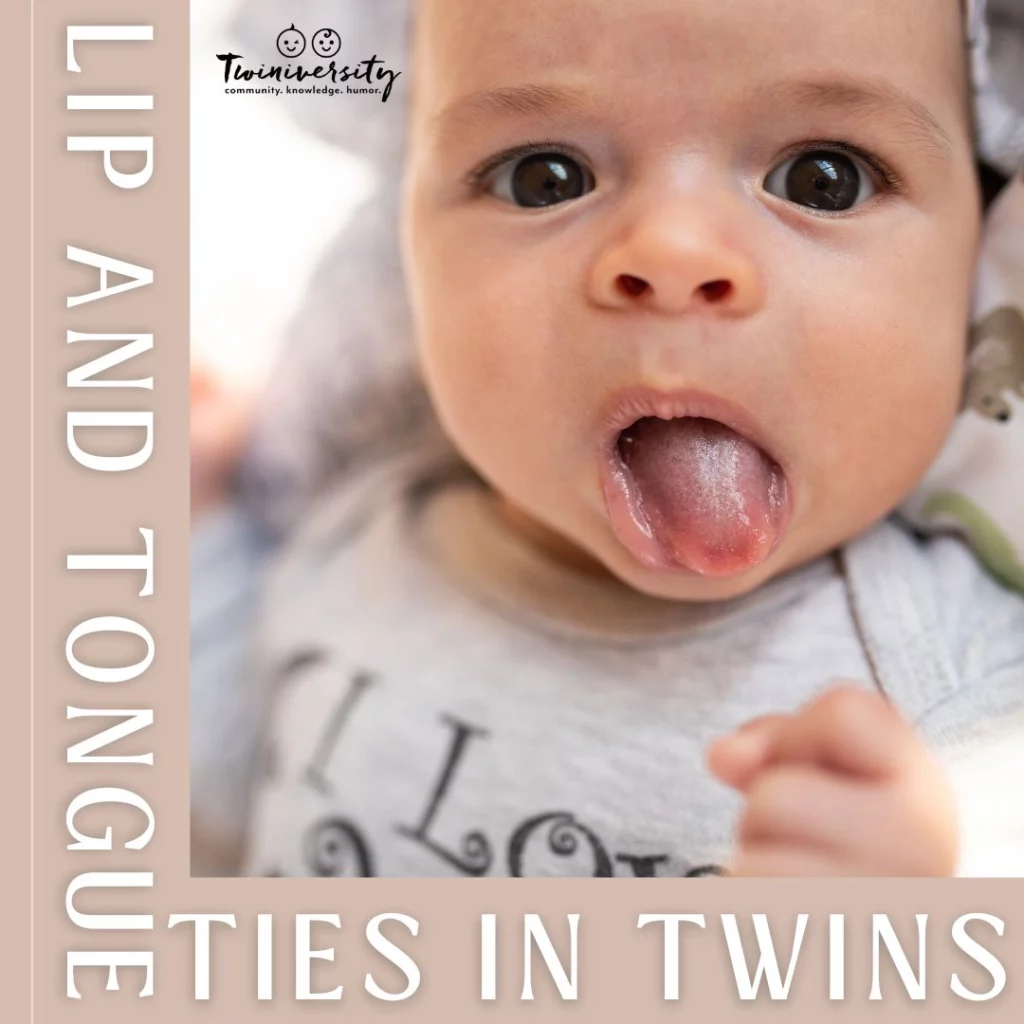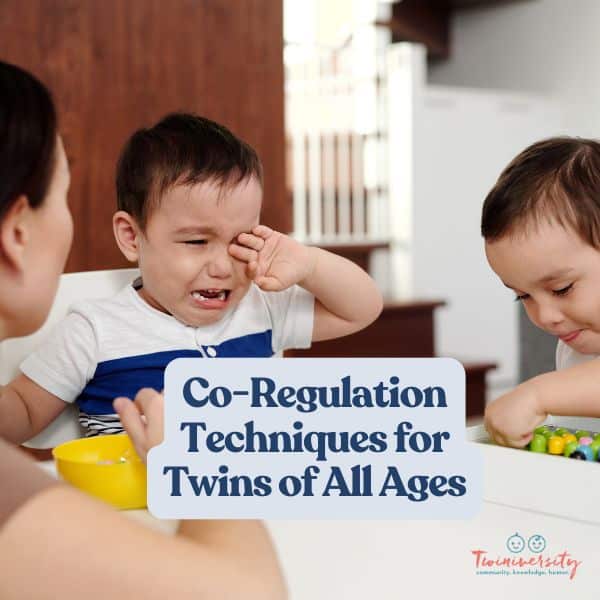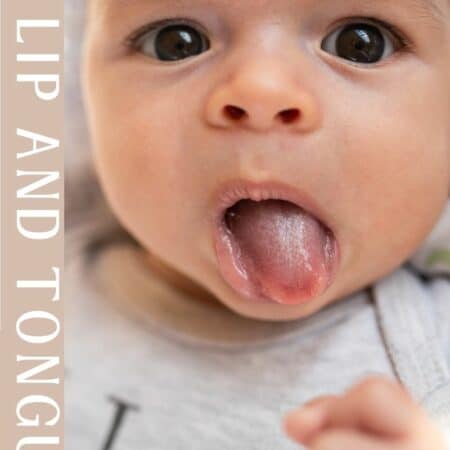
Have you experienced a latching issue while trying to nurse your babies? Did you know this is a common sign of a tongue or lip tie? Keep reading to learn all about tongue and lip ties.
All content on this website, including medical opinions and any other health-related information, is for informational purposes only and should not be considered to be a specific diagnosis or treatment plan for any individual situation. Use of this site and the information contained herein does not create a doctor-patient relationship. Always seek the direct advice of your own doctor in connection with any questions or issues you may have regarding your own health or the health of others.
Feeding challenges with your infants can be frustrating and concerning, but understanding potential underlying issues like tongue and lip ties can provide clarity and guidance. These conditions can affect breastfeeding, bottle-feeding, and even later development of speech and oral hygiene. Let’s talk about what tongue and lip ties entail and how they could contribute to the feeding challenges you’re facing with your babies.

What is a tongue tie?
Unlike the name suggests, a tongue tie doesn’t actually involve anything being tied. What it refers to is an unusually short, thick, or tight lingual frenulum. The lingual frenulum is the stretchy part you feel underneath your tongue when you lift it up.
This condition, also known as ankyloglossia, is referred to as a tongue tie mainly because it restricts the movement of the tongue. Almost as though the tongue were “tied down.” This is why tongue ties can be culprits for feeding struggles with infants and newborns. The tongue plays a crucial role in the sucking reflex required for breastfeeding or bottle-feeding. When a baby has a tongue tie, they may struggle to latch onto the breast or bottle effectively.
What is a lip tie?
A lip tie involves a similar restraint in movement but of the upper lip instead of the tongue. In medical terms, this condition is called a thickened maxillary labial frenulum.
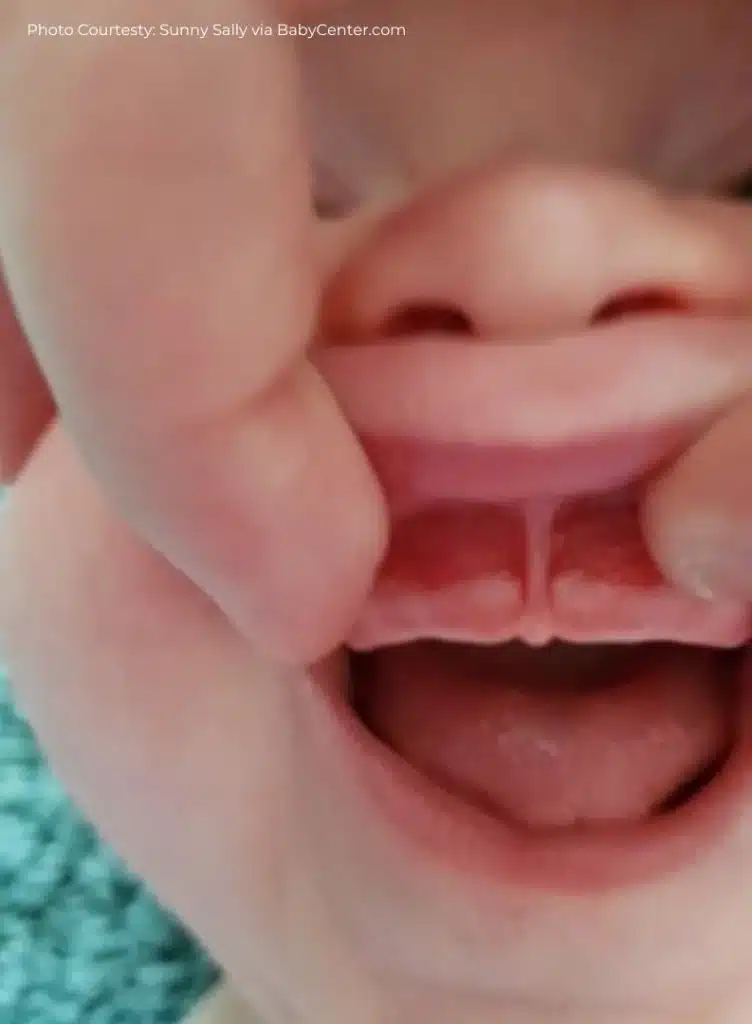
This occurs when the tissue that connects the gum to the upper lip is tighter or shorter than usual. The lack of mobility that comes with a lip tie can lead to struggles with sucking in infants.
Do babies grow out of tongue ties and lip ties?
Tongue and lip ties are congenital conditions, meaning babies are born with them. However, they’re not uncommon. In fact, mild cases of tongue tie occur in up to 4% of newborns.
Babies usually grow out of their tongue ties. This is because as they grow, the tongue eventually lengthens and gains more mobility. Babies are also good at adapting, so often, they learn to cope with this mild condition.
Though rare, tongue ties or lip ties can cause issues with feeding, speech, or dental health past infancy.

Have you taken your expecting twins class yet? We offer a great class on demand so you can take it on your own schedule! There are so many video modules covering everything from your twins’ baby registry to your first week at home with twins!
Sign up today to get started before your twins arrive.
Should tongue tie and lip tie be corrected?
The procedure to address tongue tie or lip tie is known as a frenectomy. Whether this surgery is necessary depends on several factors, including the severity of the tie, its impact on feeding, and the overall health and development of your twins.
Advice from a speech-language pathologist
Here is some helpful advice from a practicing speech-language pathologist from West Chester, Pennsylvania, Julie Mscichowski. Julie has seen many cases of oral ties in her work as an SLP, and she even has coped with an oral tie herself.
- If the child is having difficulty with feeding, such as not being able to clear food from their cheeks or raise their tongue correctly to the roof of the mouth to swallow, then there is no way to cope with this, and a release would be beneficial.
- You also need to look at the effect this incorrect tongue position (when the child is at rest or eating) will have over time. If a child’s tongue cannot raise to touch the roof of the mouth (palate), then over time, they can/will experience dental issues and potentially other issues such as sleep disruptions.
- Again, speech sound errors would depend on the severity of the tie. Many people (me included) with a tie and whose speech is ‘normal’ require speech therapy. However, if after a time in speech therapy, no progress or slow/minimal progress is made, then I think a release needs to be considered.
- If the tie is not severe, I recommend starting with a few months of ‘conventional’ therapy to see what progress we can make without the release.

If you are truly concerned that a tongue tie or lip tie is responsible for your baby’s feeding struggles, speak with your healthcare professional. A careful physical exam and a deeper look at the baby’s medical history can provide more insight.
Do you want to read personal Twin Mom stories all about tongue ties? Read Does My Twins’ Tongue Tie Need to Be Fixed?
At what age should a tongue tie be cut?
There is no specified age at which a tongue tie should be cut. Again, this is because it is often not necessary.
The procedure that releases the restrictive tissue from the tongue can be performed at any age. However, it should only be considered when severe symptoms are believed to be caused by the tie.

Worried about breastfeeding twins? What To Do When You’re Breastfeeding Two is an on-demand online breastfeeding twins class made just for YOU! This course was created by Twiniversity in partnership with Judy Teibloom-Mishkin, IBCLC. Click here to learn more…
How to prepare for a tongue tie procedure
If you do think a frenectomy would be beneficial for your child, here is some helpful insight on how to best prepare for the procedure.
According to SLP Julie Mscichowski, “Any child who has a release should really begin with some therapy before the procedure and then following. Therapy before should really only be a handful of sessions, to start getting the child comfortable with exercises and stretches. Stretching before the release has also been proven to relax the frenum a bit and make the release and recovery easier.”
What are the negatives of cutting a tongue-tie?
Treating a tongue tie is considered safe. However, it is still a medical procedure, so certain risks must be considered.
According to Johns Hopkins, some of the reported risks include:
- Severe bleeding
- Negative effect on breathing
- Injured salivary ducts
- Infection
- The need for speech therapy during recovery
- Uncomfortable feeding during recovery

What happens if you don’t cut a tongue-tie?
Most often, babies grow out of oral ties without medical intervention. This is because they grow, mature, and adapt with each passing minute.
Rarely, an untreated oral tie, like a tongue or lip tie, can cause dental issues, feeding difficulties, and speech impediments.
What are the signs my baby has a lip tie and/or tongue tie?
Identifying the root cause or underlying problem is the first step to finding a solution.
The following symptoms could potentially point to a tongue tie or lip tie in infants:
- Difficulties with latching
- Poor weight gain
- Fussiness that coincides with eating
- Laborious feeding or prolonged feeding
- A clicking noise or other abnormal sound during a feeding
This is not an exhaustive list. It’s important to note that many of the symptoms above can also indicate other conditions. So, of course, you should always consult your pediatrician and other trusted healthcare providers.

Does it affect bottle feeding?
More research has examined the relationship between oral ties and breastfeeding. Sucking milk from a bottle also requires less oral effort than from breastfeeding. That said, a baby with a tongue tie or lip tie may experience difficulty feeding from a bottle.
Does it affect breastfeeding?
Professionals debate the extent of the connection between tongue ties and lip ties and breastfeeding struggles. Research on lip ties alone is scarce, complicating efforts to establish a clear cause-effect relationship with breastfeeding difficulties.
Limited studies suggest that treating lip tie might enhance breastfeeding outcomes, but it’s crucial to note that many of these studies, including those on tongue tie, are retrospective and involve small sample sizes.
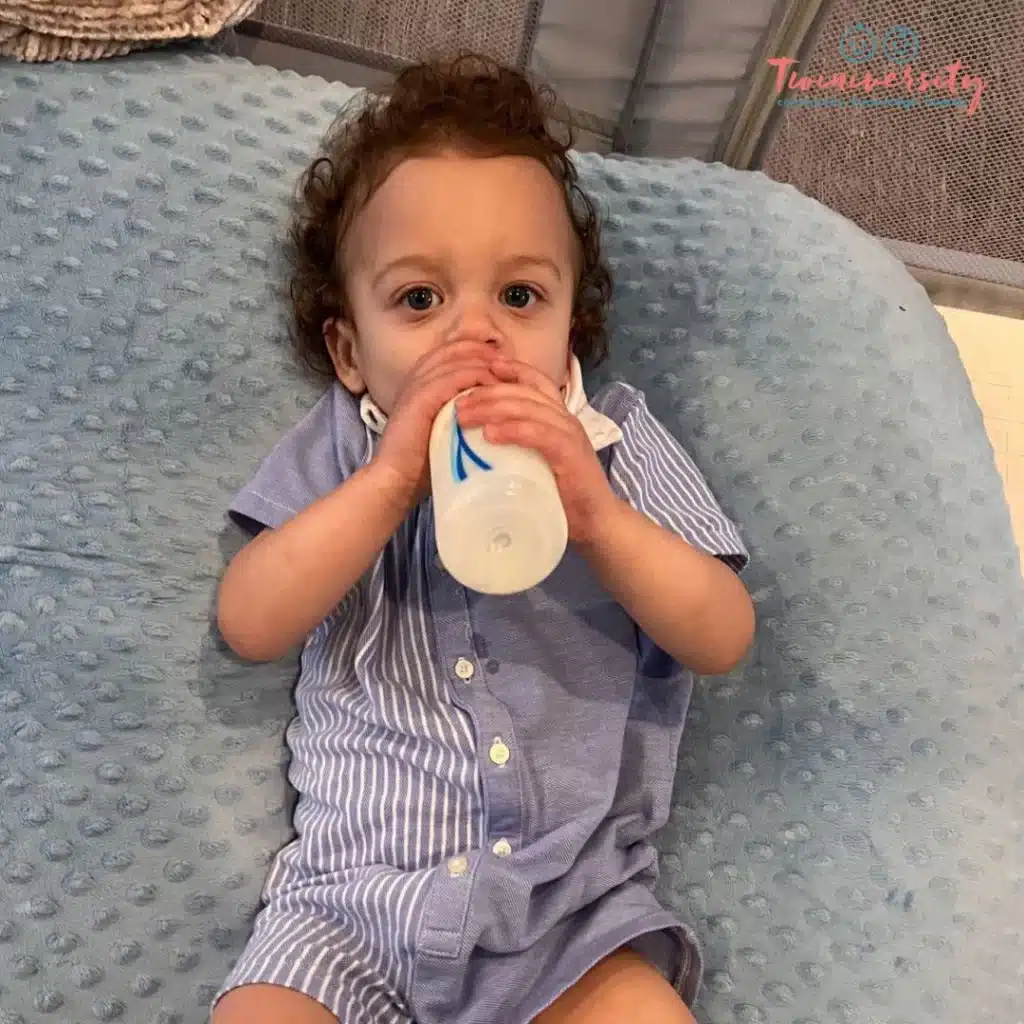
Why you shouldn’t fix a tongue tie or lip tie
In general, if the oral tie isn’t causing any issues with the child’s health or development, there is no reason to fix it. Remember, this is a relatively common condition that most infants grow out of over time.
At the end of the day, you know your child best. Take in all the information and get several expert opinions on your particular case. Then, do what you feel is best for your child.

Paige Figueroa is a mom to almost two-year-old fraternal twins. After teaching English for 9 years, she now works from home as a freelance copywriter and entrepreneur so she can spend more time with her children. She loves helping other moms and women enjoy more freedom in their lives by monetizing their passions. You can follow her on IG and TikTok @mombossfreedom or visit mombossfreedom.com.

